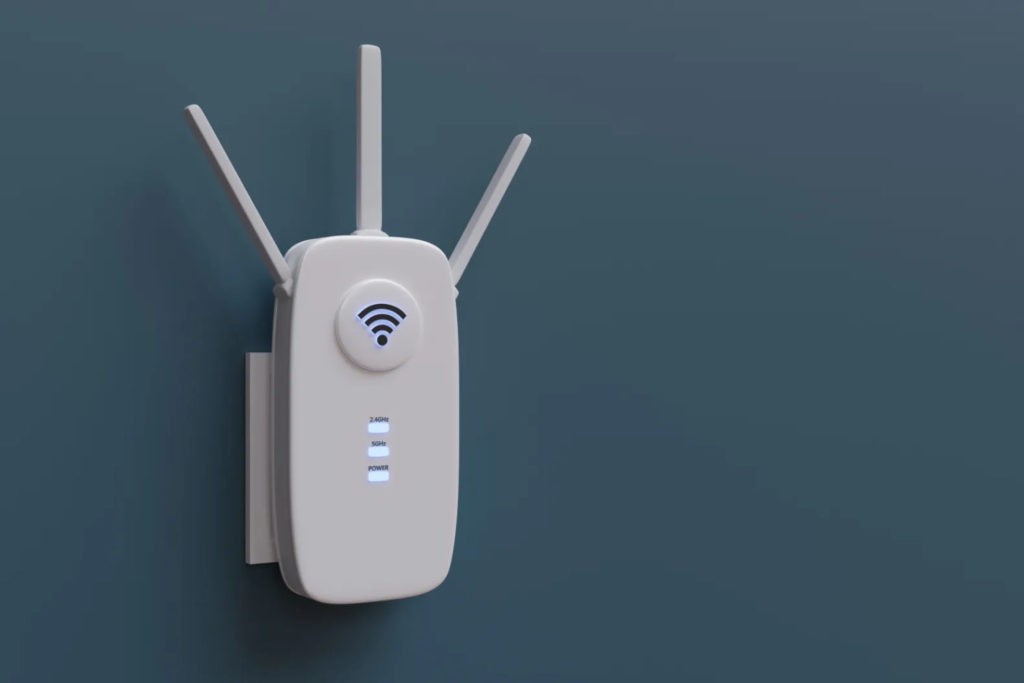In an era where uninterrupted connectivity is the base of our digital existence, the decision to enhance your Wi-Fi network’s range and performance becomes a critical one. As you embark on the quest to eliminate Wi-Fi dead zones and ensure a seamless online experience throughout your home or workplace, you may face a choice: Wi-Fi repeater or Wi-Fi extender. These devices promise to boost your wireless network’s reach, but they do so in slightly different ways. To make an informed decision about which one to invest in, it’s essential to understand the distinctions between Wi-Fi repeaters and extenders and determine which solution best suits your specific connectivity needs. This article will provide a comprehensive overview of Wi-Fi repeaters and extenders, including how they work, the benefits and drawbacks of using each type of device, and which one is right for you.

Table of Contents
What is a Wi-Fi repeater?
A Wi-Fi repeater is a device that receives your existing Wi-Fi signal and then amplifies and retransmits it. This can extend the range of your Wi-Fi network to areas where the signal is weak or nonexistent. Repeaters are typically inexpensive and easy to set up. They can be a good solution for small homes or offices with limited dead zones. However, it is important to note that repeaters can reduce the speed of your Wi-Fi network by up to half.
How does a Wi-Fi repeater work?
A Wi-Fi repeater works by receiving the signal from your router, amplifying it, and then retransmitting it. This creates a new Wi-Fi network that is essentially an extension of your existing network. Repeaters are typically placed between the router and the area where the signal is weak. This helps to ensure that the repeater receives a strong signal from the router and can amplify it effectively.
Also read- Best Antivirus Software for PC
What is a Wi-Fi extender?
A Wi-Fi extender is similar to a repeater, but it works slightly differently. Extenders connect to your router using a wired or wireless connection. This allows them to boost your Wi-Fi signal more effectively than repeaters. Extenders are typically more expensive than repeaters, but they offer better performance and range. They are a good solution for larger homes and offices with multiple dead zones.
How does a Wi-Fi extender work?
A Wi-Fi extender works by connecting to your router and creating a new Wi-Fi network. This new network has the same name and password as your existing network, so devices will automatically connect to the strongest signal. Extenders are typically placed in areas where the signal from your router is weak. This helps to ensure that devices in those areas can connect to the extender and receive a strong signal.
Benefits of using a Wi-Fi repeater or extender
There are several benefits to using a Wi-Fi repeater or extender, including:
- Extended range: Repeaters and extenders can extend the range of your Wi-Fi network, allowing you to connect to the internet in areas where the signal is weak or nonexistent.
- Improved performance: Repeaters and extenders can improve the performance of your Wi-Fi network in areas where the signal is weak.
- Reduced dead zones: Repeaters and extenders can help to reduce dead zones in your home or office where there is no Wi-Fi signal at all.
- Easy to set up: Most repeaters and extenders are easy to set up and use.
Also Read- Best PC Benchmark Software – Monitor your CPU performance NOW!
Drawbacks of using a Wi-Fi repeater or extender

There are also a few drawbacks to consider when using a Wi-Fi repeater or extender, including:
- Reduced speed: Repea
- ters and extenders can reduce the speed of your Wi-Fi network. This is because they have to amplify and retransmit the signal, which can add latency.
- Increased interference: Repeaters and extenders can increase interference on your Wi-Fi network. This is because they are essentially creating a new Wi-Fi network.
- Security risks: Repeaters and extenders can pose security risks if not configured properly.
Comparison
Performance
Wi-Fi extenders typically offer better performance than Wi-Fi repeaters. This is because Wi-Fi extenders can connect to your router using a wired or wireless connection. Wi-Fi repeaters, on the other hand, must connect to your router wirelessly. This can reduce performance, as the repeater has to compete with other devices on the network for bandwidth. Wi-Fi extenders also use a technique called MIMO (multiple-input, multiple-output) to improve performance. MIMO allows Wi-Fi extenders to transmit and receive multiple data streams simultaneously, which can significantly increase throughput. Wi-Fi repeaters do not support MIMO.
Also Read- Top ZoomInfo Competitors – Best 7 FREE Alternatives
Range
Wi-Fi extenders can also extend the range of your Wi-Fi network further than Wi-Fi repeaters. This is because Wi-Fi extenders can amplify the signal from your router. Wi-Fi repeaters, on the other hand, rebroadcast the signal from your router. The range of a Wi-Fi extender or repeater will vary depending on the model and the environment in which it is used. However, in general, Wi-Fi extenders can extend the range of your Wi-Fi network by up to 1,500 square feet, while Wi-Fi repeaters can extend the range of your Wi-Fi network by up to 1,000 square feet.

Ease of use
Wi-Fi repeaters and extenders are both relatively easy to set up and use. However, Wi-Fi extenders may require a wired connection to your router. This can add to the complexity of the setup process, especially if you need to run a cable through your home or office. Most Wi-Fi repeaters and extenders can be set up using a web browser or mobile app. Follow the instructions that come with your device to connect it to your router and your Wi-Fi network.
Cost
Wi-Fi repeaters are typically less expensive than Wi-Fi extenders. This is because Wi-Fi repeaters are simpler devices. Wi-Fi extenders, on the other hand, are more complex devices, as they need to be able to amplify the signal from your router. The price of Wi-Fi repeaters and extenders can range from around $20 to $100 or more. The price will vary depending on the features and performance of the device.

Also Read- Top 15 Team Management Software in 2023
Which one should you buy?
If you are looking for the best possible performance and range, a Wi-Fi extender is the better option. However, if you are on a budget or you need a simple solution to extend the range of your Wi-Fi network, then a Wi-Fi repeater may be a better option for you.
Here are some additional factors to consider when choosing between a Wi-Fi repeater and an extender:
- The size of the area: If you have a large home or office, you may need to purchase multiple devices to extend your Wi-Fi network to all areas.
- The type of walls: Thick walls can block Wi-Fi signals, so you may need a more powerful device to extend your Wi-Fi network through them.
- The number of devices connected to your Wi-Fi network: If you have a lot of devices connected to your Wi-Fi network, you may need a more powerful device to handle the load.
If you are not sure which type of device is right for you, it is a good idea to consult with a networking expert. They can help you to assess your specific needs and choose the best device for your situation.
Conclusion
Wi-Fi repeaters and extenders are useful devices for improving the coverage of your Wi-Fi network. However, they have different strengths and weaknesses. Wi-Fi extenders offer better performance and range, but they are more expensive and may require a wired connection to your router. Wi-Fi repeaters are less expensive and easier to set up, but they offer lower performance and range. The best device for you will depend on your individual needs and budget. If you are looking for the best possible performance and range, a Wi-Fi extender is the better option. However, If you are on a budget or you need a simple solution to extend the range of your Wi-Fi network, then a Wi-Fi repeater may be a better option for you.
Also Read- Smash Sales Goals with the Best 10 Email Sequence Software
Frequently Asked Questions
What is the difference between a Wi-Fi repeater and extender?
A Wi-Fi repeater simply amplifies and rebroadcasts your existing Wi-Fi signal to expand the range. An extender connects to your router via wired or wireless connection to create a new stronger Wi-Fi network in areas with weak signal.
Do Wi-Fi extenders provide faster speeds than repeaters?
Yes, Wi-Fi extenders typically offer faster speeds because they use advanced techniques to transmit multiple data streams. Repeaters can cut your speed in half since they must amplify and rebroadcast.
How many Wi-Fi extenders or repeaters do I need?
Depends on size of area needing coverage. You may need multiple devices placed strategically to eliminate dead zones in large homes or offices.
Can I use a repeater and extender together?
Yes, you can use both types of devices together for very large spaces. Place repeaters to amplify router signal to the extenders located further away.
How do I choose between a Wi-Fi repeater and extender?
Consider your budget, performance needs, size of area needing expanded signal, and if you can run ethernet cables for wired extenders. Your specific situation will dictate the best option.










